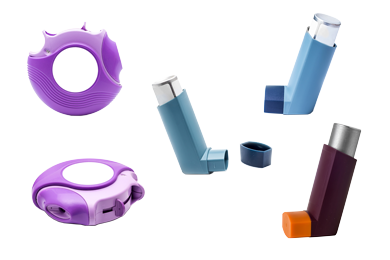 Claims must be accurate, fair and balanced
Claims must be accurate, fair and balanced
Generally speaking the requirement for being ‘fair’ refers to claims that make comparisons. Only products or services intended for the same purpose should be compared. For example it could be considered unfair to directly compare the analgesic efficacy of a strong opioid with paracetamol as the two medicines are in different classes and are generally used for different pain severities. Likewise a cost comparison between products would be unfair if only the most expensive comparators were picked, leaving out the cheaper options.
Balance – this generally refers to a balance of positive and negative facts (for example mentioning important safety warnings as well as efficacy). Picking certain facts out which do not necessarily reflect the balance of all of the evidence available is sometimes called ‘cherry picking’ and is not acceptable.
Consider these examples
Unfair comparison
A leave-piece produced by GSK in the UK for Seretide (salmeterol/fluticasone) was headed
“Cost comparison for combination therapies in asthma at beclometasone equivalent daily doses”.
Under this heading was a chart comparing various combinations and doses. The comparisons were grouped according to low, medium and high dose beclometasone. The cost per 30 days’ treatment at sustained dosing was given and the final column of the chart was headed ‘Cost difference with Seretide per 30 day treatment’.
There was an associated claim that stated: Seretide can be up to £35.08 cheaper for 30 days treatment at a stable dose than Symbicort (budesonide/formoterol).
In the chart the difference of £35.08 compared 30 days of Symbicort 400/12, two puffs bd vs 30 days of Seretide 500 Accuhaler, one puff bd.

Do you think this comparison is accurate, fair and balanced?
Hint – you may need to refer to the SmPCs for both products.
AstraZeneca complained that this was an unfair comparison because the Symbicort 400/12 summary of product characteristics stated that the recommended dose was one puff bd. Although some adults might require up to two puffs bd, very few prescriptions were for Symbicort 400/12, two puffs bd. On this basis the comparison was deemed unfair by the UK Authority as it exaggerated the cost difference between the two products and was not a fair reflection of all of the data.
Balance
Consider the following tweet (written by a celebrity) that was posted on Twitter by American company Duchesnay Inc. They market the product DICLEGIS (doxylamine succinate and pyridoxine hydrochloride)
OMG. Have you heard about this? As you guys know my #morningsickness has been pretty bad. I tried changing things about my lifestyle, like my diet, but nothing helped, so I talked to my doctor. He prescribed me #Diclegis, and I felt a lot better and most importantly, it’s been studied and there was no increased risk to the baby. I’m so excited and happy with my results that I’m partnering with Duchesnay USA to raise awareness about treating morning sickness. If you have morning sickness, be safe and sure to ask your doctor about the pill with the pregnant woman on it and find out more www.diclegis.com; www.DiclegisImportantSafetyInfo.com.
The US PI for DICLEGIS contains the following important information;
DICLEGIS is indicated for the treatment of nausea and vomiting of pregnancy in women who do not respond to conservative management. Limitations of Use: DICLEGIS has not been studied in women with hyperemesis gravidarum.
It also includes Warnings and Precautions regarding activities requiring mental alertness and concomitant medical conditions. In addition, the most common adverse reaction reported with DICLEGIS was somnolence.
Which of the following statement do you agree with:
- This is approvable as they have included a link to the important safety information
- This tweet is not balanced as it omits important safety information
- Omitting safety information in a tweet is approvable due to the word limit on tweets
- This tweet misleads the reader into thinking that DICLEGIS is safer than has been demonstrated
- This tweet is approvable as promotion to the public is allowed in the US
Ruling
This tweet was the subject of an FDA warning letter because of the lack of balanced information that made it misleading. FDA said it was misleading as it left out all safety information about the product as well as the material fact that the product had not been studied in women with hyperemesis gravidarum. The link to the safety information did not mitigate the misleading omission of risk information. A number of sanctions were imposed including issuing corrective tweets.


